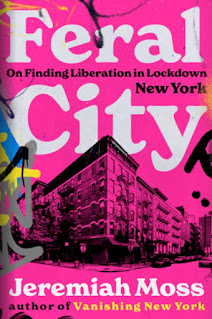Jacobs did, however, detect a process that is clearly the same one we are contending with today--what I call hyper-gentrification. Jacobs would call it over-success. She wrote:
"so many people want to live in the locality that it becomes profitable to build, in excessive and devastating quantity, for those who can pay the most. These are usually childless people, and today they are not simply people who can pay the most in general, but people who can or will pay the most for the smallest space. Accommodations for this narrow, profitable segment of population multiply, at the expense of all other tissue and all other population. Families are crowded out, variety of scene is crowded out, enterprises unable to support their share of the new construction costs are crowded out."
She calls this "a problem of malfunction in cities themselves," and concludes, "we must understand that self-destruction of diversity is caused by success, not by failure."
Happy 100th birthday Jane.




1 comment:
Jane was one of my favorite New York activists and she was also a profoundly astute sociologists. She saved Little Italy and Soho from Robert Moses' plan for a lower Manhattan Expressway that would have bulldozed a divide right through those culturally vibrant Neighborhoods. If she were alive today, I wonder if she would still be moved to save these now commercially vibrant neighborhoods from a similar fate?
Post a Comment